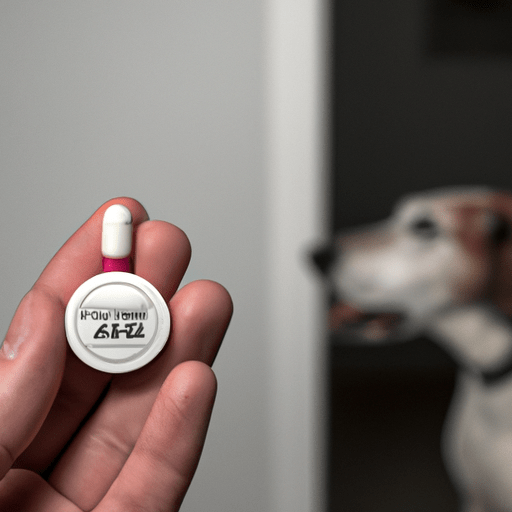As a responsible dog owner, you’re likely to be familiar with a myriad of health issues that can plague your furry friend. One such issue is gastrointestinal (GI) problems, which can be caused by a variety of factors, such as bacterial infections, parasites, or inflammatory bowel disease. In such cases, a common medication prescribed by veterinarians is Metronidazole. This article aims to provide an in-depth look at Metronidazole and answer the question, “how long does it take for Metronidazole to work in dogs?”
Contents
- Understanding Metronidazole
- How Long Does Metronidazole Take to Work?
- Administering Metronidazole to Your Dog
- Possible Side Effects of Metronidazole
- Frequently Asked Questions
Key Takeaways
- Metronidazole is a commonly prescribed medication for dogs with gastrointestinal issues.
- The efficacy of Metronidazole varies, but you can typically see improvements in your dog’s health within 2-3 days.
- Administering the medication properly is crucial for its effectiveness.
- Metronidazole has potential side effects that dog owners should be aware of.
Understanding Metronidazole
Metronidazole is an antibiotic and antiprotozoal medication. It’s effective at treating a variety of conditions in dogs, most notably gastrointestinal issues. It works by disrupting the DNA of the bacteria or parasites causing the problem, eventually leading to their death. This link provides a more detailed explanation of how Metronidazole works.
How Long Does Metronidazole Take to Work?
The time it takes for Metronidazole to work can vary depending on the severity of the condition and the dog’s overall health. However, in most cases, dog owners can expect to see improvements in their pet’s symptoms within 2-3 days. Complete recovery, though, may take longer and depends on the dog’s response to treatment and the type of infection.
Administering Metronidazole to Your Dog
Administering Metronidazole properly is crucial. It’s typically given orally and can be administered with food to help prevent stomach upset. Always follow the dosing instructions provided by your veterinarian. Remember, it’s important to complete the entire course of the medication, even if your dog seems to be feeling better, to prevent recurrence of the infection. This article provides helpful tips on how to administer medication to your dog.
Consider visiting OneTopDog for more detailed information on various dog health issues. Keeping a close eye on your dog’s behavior and diet can help you identify any potential health issues early. Also, regular exercises can boost your dog’s overall immunity, making them less susceptible to infections.
Possible Side Effects of Metronidazole
While Metronidazole is generally safe for dogs, it can cause side effects in some cases. Some of the common side effects include:
- Loss of appetite
- Nausea or vomiting
- Drooling
- Fatigue
If your dog exhibits any of these symptoms, or if their condition worsens after administering Metronidazole, contact your vet immediately.
Frequently Asked Questions
1. Can Metronidazole be given to all breeds of dogs?
Yes, Metronidazole is safe for all breeds of dogs. However, the dosage might vary depending on the dog’s weight and overall health condition.
2. Can I give my dog Metronidazole without consulting a vet?
No, it’s crucial to consult a vet before administering any medication to your dog. Using Metronidazole without a vet’s guidance might lead to adverse effects.
3. What should I do if I miss a dose?
If you miss a dose, give it as soon as possible. If it’s almost time for the next dose, skip the missed dose and continue with the regular schedule.
In conclusion, Metronidazole is a potent medication for treating a range of GI problems in dogs. As a caregiver, it’s crucial to administer the medication correctly and watch out for any potential side effects. Always consult with your vet for any health-related concerns about your pet. Remember, a healthy dog is a happy dog!



